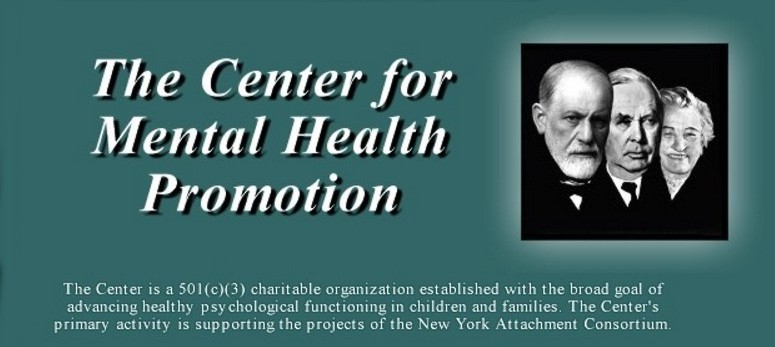...
|
|
A statement from the founders about The Center for Mental Health Promotion We founded the Center for Mental Health Promotion in 1998 with the broad goal of exploring ways of promoting mental health in children and families. Our work as clinicians for many years in a variety of settings verified the generally accepted axiom that residue from negative experiences in childhood makes it very difficult for people to make changes in patterns of behavior or in their mood states later in life. We believe that if the mechanisms underlying these experiences were better understood, particularly the unconscious representations of past relationships, approaches might then be formulated to prevent the formation of these dysfunctional patterns. Having already completed psychoanalytic training, we thought that attachment theory and research with its empirical tradition would be a good complement to the clinical insights offered by psychoanalysis. Together, these two disciplines could offer the best avenue for better understanding these underlying mechanisms. We were fortunate to have two of the world’s leading experts in these fields working in our immediate area. Our earlier association with the postdoctoral psychoanalytic program at Adelphi University led us to contact Morris Eagle who is on faculty there. His impressive ability to bridge psychoanalysis and attachment theory is well known, which made him an obvious choice to approach for this collaboration. He was enthusiastic from the beginning, and plans were soon formulated for hiring postdoctoral researchers under his direction and organizing a conference to bring together leading attachment theorists and researchers to discuss the work they were doing. In addition, the conference participants were asked to present with an eye toward the clinical implications of their work. Everett Waters, who works up the road from us, was contacted to be a speaker. Though he deferred at the time to his colleague, Judy Crowell, because of the clinical focus of her work, that initial contact led to a very fruitful and continuing collaboration. Everett, in addition to his vast understanding of attachment theory, has particular expertise in designing and conducting research projects. Thus, he was enthusiastic about getting involved with the studies being conducted by the postdoctoral researchers, and meetings began that focused around their work. With the expertise of this core group, coupled with the proximity of many prominent researchers in the New York area, and bolstered by the resources of the Center, it was apparent that some interesting collaborations could ensue.
|
 About The Center |
 Bowlby-Ainsworth Awards |
 johnbowlby.com |
 Adelphi's Derner Institute |
 Soc. for Res. in Child Development |

